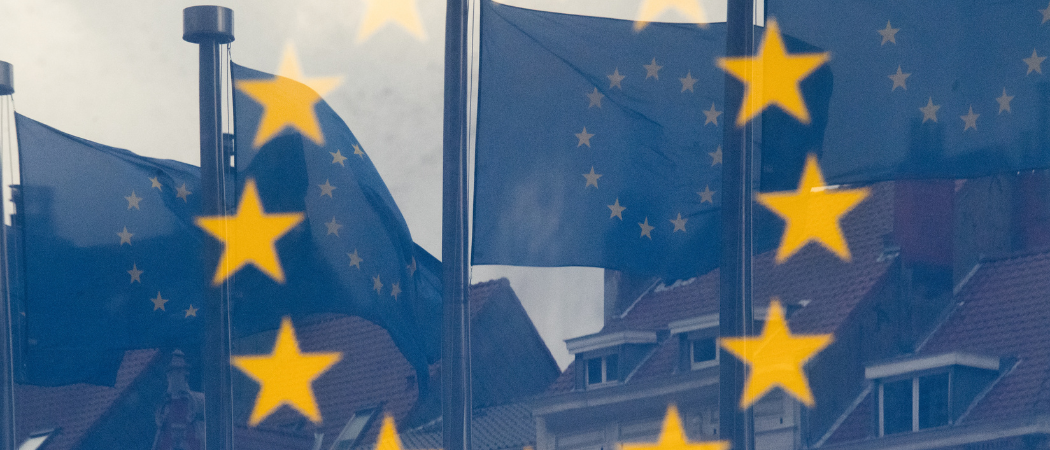Concern about current geopolitical challenges shows through in leaked memo on priorities for Cluster 2 in Horizon Europe

Photo credits: Mauro Bottaro / European Union
The European Commission is seeking to boost research into democratic resilience over the next two years, with bigger, more open calls under Cluster 2 of Horizon Europe, which focuses on culture, creativity and an inclusive society.
A leaked memo on the 2026-27 work programme, seen by Science|Business, shows the Commission deliberating research that strengthens Europe’s coherence and unity against “the shockwaves coming across the Atlantic and from the East.”
While the “reinvigoration of democratic governance” was already a priority in the 2021-24 work programme for Cluster 2, the geopolitical context has changed, with increasing autocratic tendencies threatening basic liberties in Europe and around the world.
Researchers will be asked to address “the human, social and political impacts of polarisation, populism, dogmatism and radicalisation,” the leaked plans say. Specific topics highlighted include gender-based violence, media pluralism, and the fairness of elections.
This will be done with “fewer, larger and more open topics than in previous work programmes,” the memo goes on, reflecting the Commission’s desire to make the next EU budget more impactful and effective.
A new partnership for social transformation and resilience is also proposed, to be co-funded with member states. This is intended to foster inclusive growth and reduce vulnerabilities arising from changes related to the climate, trade patterns and demographics.
A draft Cluster 2 work programme for 2025 that Science|Business reported on last week reveals that autocracy and geopolitical uncertainty are already a concern in humanities research. Among other calls, the EU will this year put €10.5 million into research looking into the appeal of autocratic governance, in a bid to equip policymakers with insights on these trends and, eventually, new tools to manage them.
The leaked 2026-27 plans, which outline research topics that the EU is considering for funding, is one of many that Science|Business has shared over the past few months in order to provide transparency into the drafting process.
Alongside democracy, Cluster 2 will continue to fund research in 2026-27 linked to cultural heritage and socio-economic inclusion in Europe.
On the former, research topics will include how culture and creativity can contribute to a fair and sustainable approach to the digital and clean transitions. Support will continue for the co-funded and co-programmed Partnership for Resilient Cultural Heritage, which aims to foster application-oriented collaborations between cultural heritage and climate research.
By 2030, the partnership is expected to have helped develop evidence-based policies and legislation. And by 2040, it must give cultural heritage an active role in the transition to sustainable socio-economic and governance models in EU member states.
Below is a breakdown of the research areas proposed for Cluster 2 in 2026-27.
Democracy and governance:
- Media freedom and media pluralism
- Societal resilience and preparedness
- Artificial intelligence and the digital transformation of democracy
- Citizen participation and inclusive policymaking
- Promoting equality and inclusiveness
- Governance and public administrations
- Rule of law and corruption
- International dimension
Culture, creativity and inclusive society:
- A new plan for Europe’s sustainable prosperity and competitiveness
- Supporting people, strengthening our societies and our social model
- Transversal topics
Social and economic transformations:
- Boosting sustainable economy
- Reducing vulnerabilities
- Drivers of change
These topics are likely to change before the official release of Horizon Europe 2026-27 work programmes later this year.
We think it is important to maintain a public record of how Horizon Europe evolves in successive rounds of drafting between the Commission and member states. This is a political process that, so far, the Commission refuses to make transparent. To this end, Science|Business is making a full history of the drafting process publicly available in our Horizon Papers database. You can share other draft work programmes anonymously at [email protected].





 A unique international forum for public research organisations and companies to connect their external engagement with strategic interests around their R&D system.
A unique international forum for public research organisations and companies to connect their external engagement with strategic interests around their R&D system.